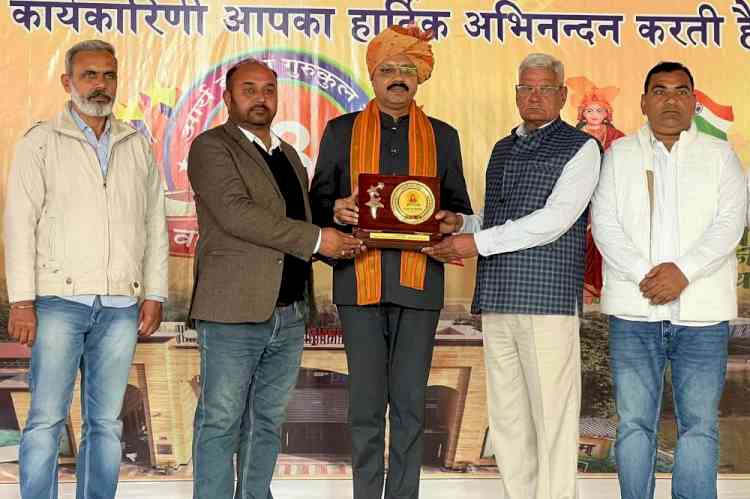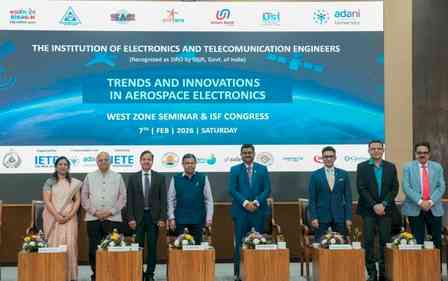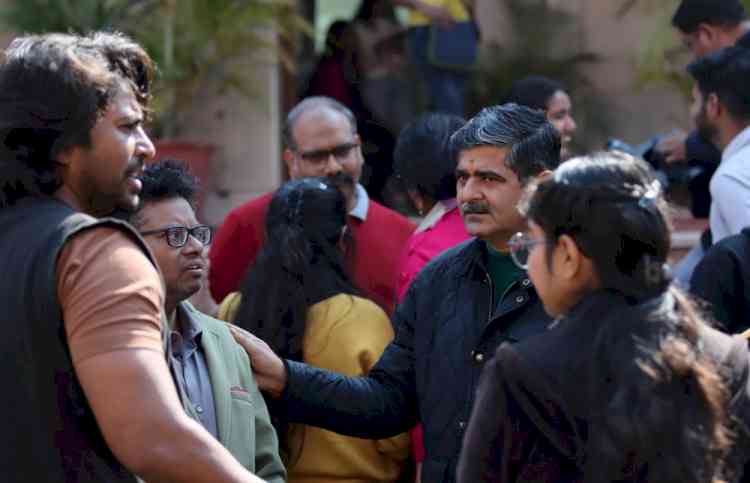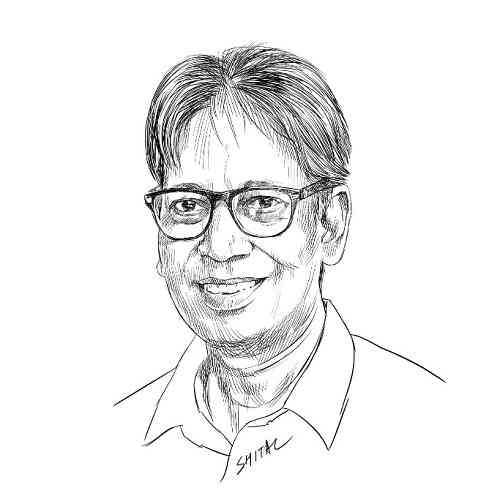Five day Asia-Pacafic Summit on Smart Agriculture & Sustainable Agriculture Concludes
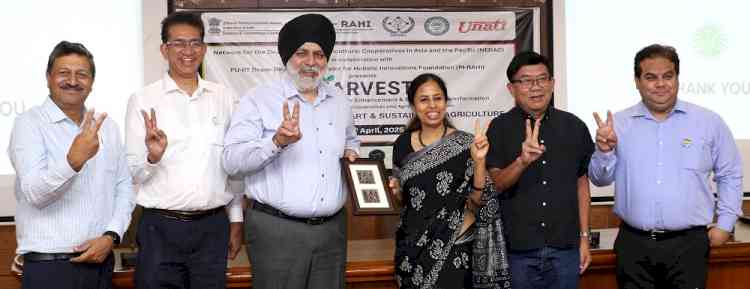
Chandigarh April 27, 2025: Panjab University-IIT Ropar Regional Accelorator for Holistic Innovations (PI-RAHI), the Northern Region S&T Cluster organised a five day workshop to empower Farmer Producer Organizations (FPOs) and Cooperatives and showcase breakthrough innovations and best practices. HARVEST (Holistic Agri-tech Initiative for Rural Value-chain Enhancement & Sustainable Transformation). The workshop was organised in collaboration with Network for the Development of Agricultural Cooperatives in Asia and the Pacific (NEDAC), Thailand.
The summit had 35 participats representing FPOs and Cooperatives from 10 Indian states and 7 countries across the Asia-Pacific region.This is the first summit at organised in the country to drive transformation at grassroot level through use of novel technological interventions. The representatives from FPOs and Cooperatives identified ground-level challenges and their potential solutions were brainstormed. The summit was orgainsed at various insitutions/organisations like Indian Institute of Technology, Ropar, CSIR-Institute of Himalayan Bioresource Technology (IHBT), Palampur, and Unati Co-op. Marketing-cum-Processing Society Ltd., Talwara, BRIC-National Agri-Food Bioprocessing Institute (NABI), Mohali and Panjab University, Chandigarh.
The participants were introduced to latest technological innovations at CSIR-IHBT by Dr. Sudesh K Yadav, Director, CSIR-IHBT. They were introduced work being undertaken for National projects like Aroma, Floriculture, Phytopharmaceutical missions. The participants were also exposed to various technologies available and products developed by CSIR-IHBT. The facilities and work done in growing exotic and rare medicinal plants along with vertical farming were also demonstrated.
At Unati Co-op. Marketing-cum-Processing Society Ltd., Talwara the participants were shown work done in the area of post-harvest technologies, fermentation, rural mileu accelorator, drone technologies and packaging.
BRIC-NABI showcased their speed-breeding facility, tissue culture and supercumputing facilities. The contributions of the institute in transferring many crop varieties was also demonstrated to the participants. Prof. Ashwani Pareek, Executive Director, BRIC-NABI emphasied the importance of Biomanufacturing for Indian Economy and goals for Viksat Bharat by 2047 and the potential role of NABI.
Mr. Harman Puri, Founder Lagom Chain, UK discussed the potential of blockchain technology in Cooperative and Mr. Ankush Pathania, CEO, Vety and Livestock Innovation and Incubation Foundation (VLIIF)discussed about the work being done in the area of dairy processing at GADVASU, Ludhiana.
The highlight of the summit was a high-impact AgriTech Challenge wherein various startups pitched impactful solutions on climate-resilient agriculture, market access, waste-to-wealth innovations, and financial inclusion. The following three stratup were awarded prizes.
· First Prize (₹50,000) awared to Agro Stubble Management Pvt. Ltd.provided a solution for stablle waste by developing low-cost ceiling tiles.
· Second Prize (₹30,000) was awarded to Biofield Power Pvt. Ltd. for its digitalising biomass supply chain to provide sustainable fuel to industries.
· Third Prize (₹20,000) was awared to Kanav Biosyze Pvt. Ltd. for its conversion of waste material into Keratin which is a value added products for enhancement of circular economy.
The summit was inaugurated by Mrs. Shailender Kaur (IFS), Director of Horticulture, Government of Punjab. The prominent delegates included Er. Pritpal Singh, Executive Director, Punjab State Council for Science & Technology (PSCST), Dr. Manmohanjit Singh from PAU and Mr. Virgilio Rodriguez Lazaga, Vice Chairman of NEDAC, Col. Himanshu, Director, NEDAC, Mr. Vikrant Dogra Chairman, UAMMCL, Dr. Jatinder Kaur Arora, Advisor PI-RAHI,Prof. Rakesh Sharda, Principal Scientist, Plasticulture, Punjab Agriculture University, Ludhiana.Dr. Radhika Trikha, CEO of iHub-AwaDH.
The summit is important as 2025 as the International Year of Cooperatives. The summit was successful in delivering on its vision of “building a better world through the power of technology and collective enterprise.” With practical outcomes including cross-border collaborations, startup solutions, and community-led innovation models, the summit positions PI-RAHI at the forefront of shaping a scalable, inclusive, and tech-driven agricultural future for the region.



 City Air News
City Air News 
